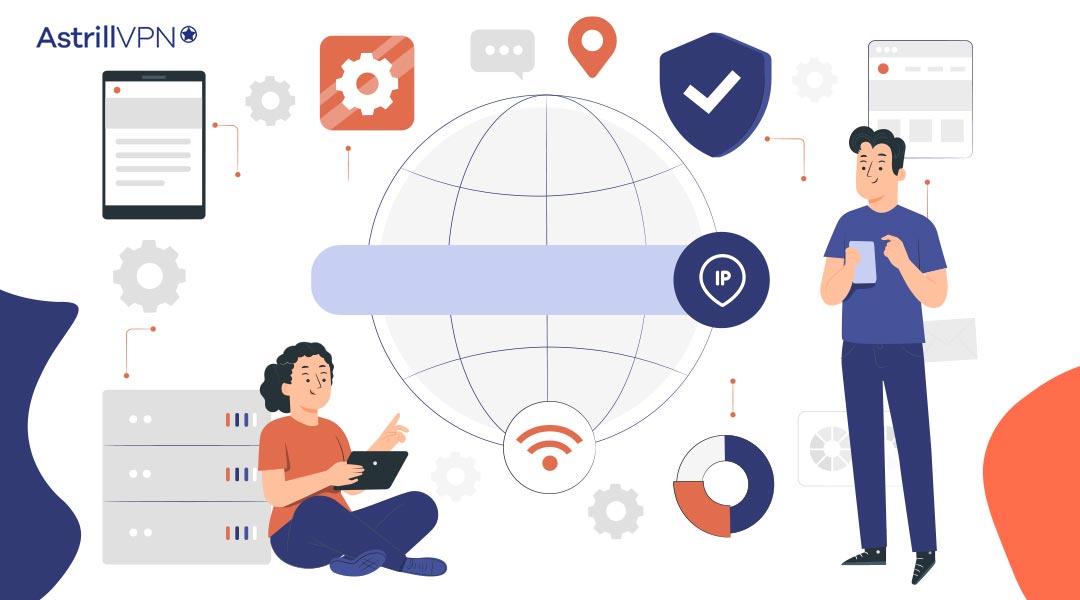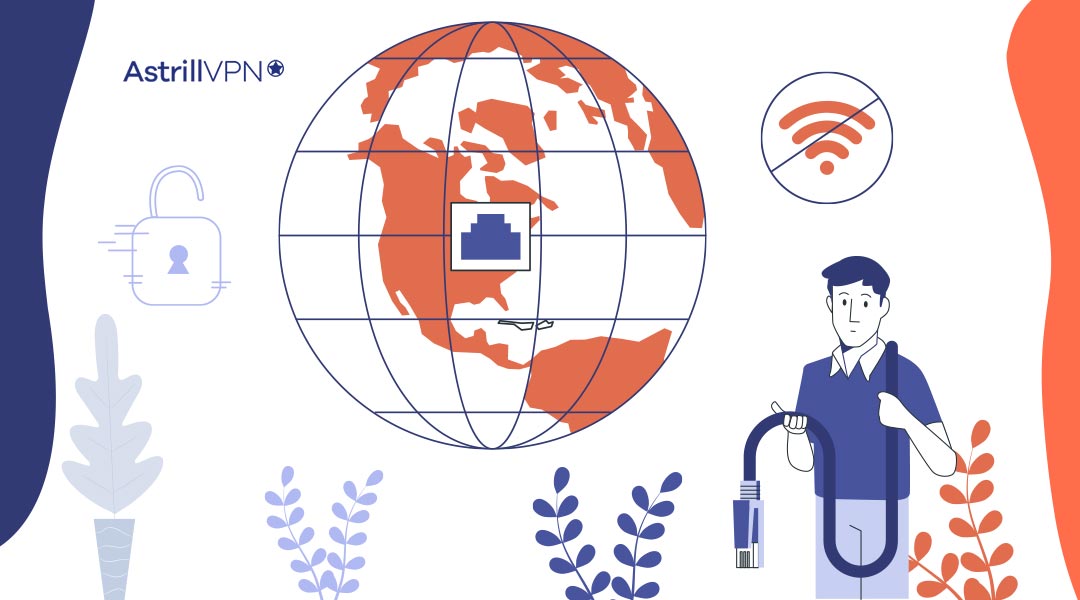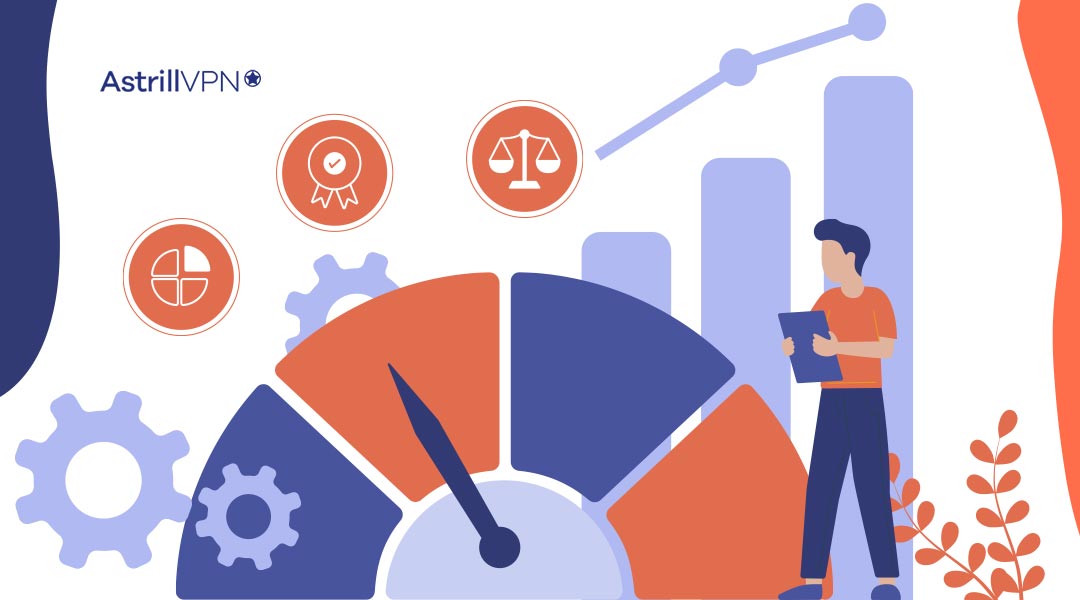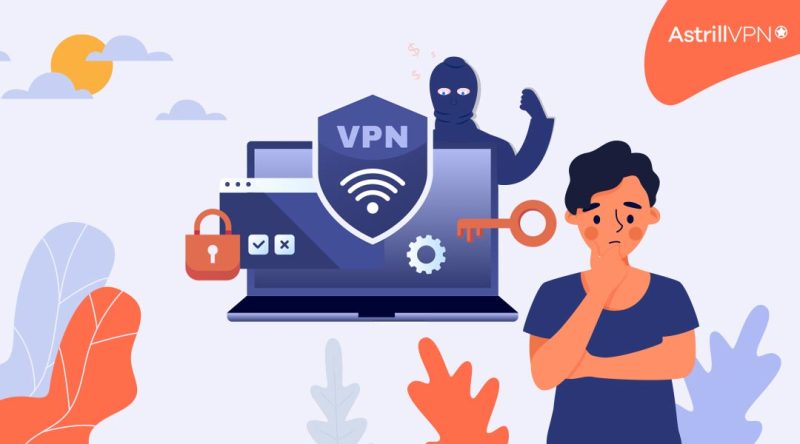In an increasingly digital world, protecting our data has become even more critical. It’s important that you can trust your VPN to keep your data safe and secure. But how to tell if is my VPN working?
The short answer is that it’s tricky but can be done. In this article, we’ll look at some key factors to consider when evaluating whether your VPN service provider is trustworthy. We’ll also look at a few tips on checking if your VPN is secure so that you can have peace of mind while browsing and streaming online.
Table of Contents
How to Test a VPN?
The best way to make sure your VPN is working properly is to test VPN connection . There are a few simple ways to test VPN:
Checking your IP address:
Your IP address should differ from the one you had before connecting to the VPN. You can check what IP address you have on a website such as what is my IP.

Visiting region-blocked content:
If you’re trying to access region-blocked content, connecting to a VPN should allow you access that you wouldn’t have had before. You can test this by visiting a blocked website in another country and seeing if your location changes or by using a service such as Netflix or Hulu and switching regions after connecting to the VPN.

Running speed tests:
When connected to a VPN, your connection speed will often change depending on the server’s location. To test this, compare download speeds with and without the VPN by running speed tests on sites like Speedtest.
By running these tests, you can understand whether your VPN is working properly and help ensure that your data remains secure and private while online.

How to Know if a VPN Is Working?
If you’re wondering if my VPN working or not, it’s pretty simple.
Check VPN Connection Status
Open your VPN app and verify that it shows a connection to the intended server. Check the system network settings to confirm that the VPN adapter is active. VPNs can disconnect silently due to network changes or app issues, so a quick status check ensures your connection is secure.
Compare IP Address Before and After
Visit an IP lookup tool to check your current IP. Note that when the VPN is off, connect to the VPN and refresh the page. Your IP should reflect the VPN server location; if it does not, reconnect to another server and check settings that might bypass the VPN.
DNS Leak Check
You can also check for DNS leaks. A DNS leak is when DNS requests (requests from your computer to access a website) bypass the VPN tunnel and use your actual public IP address instead. These types of leaks are common, and unless you use a reliable and secure VPN, you might be at risk of having your true IP address revealed. Luckily, there are tools that you can use to test for DNS leaks, like DNS leak test.
Checking Connectivity With DNS Leak Test
Now, how do you know if your VPN is working? You can test it out with a DNS leak test. This is a quick and easy way to see if your internet traffic is securely passing through the VPN tunnel.
Conducting a DNS leak test doesn’t require any special knowledge or technical skills. It only takes a few clicks! Here’s the step-by-step process:
- Go to https://www.astrill.com/dns-leak-test
- Run the extended test and confirm that all results show your VPN connection is working properly and not leaking any information.
- If there are any inconsistent results, contact the customer service for help.
- Make sure you repeat this process every month or so just to ensure that everything is secure.
- If you find that it isn’t working properly or experiencing slow speeds, it might be time to switch providers or upgrade your existing service.
Advanced VPN Testing/Checks
Once you have confirmed that your VPN is connected and free of basic leaks, power users may want to perform more advanced checks. These tests go beyond simple IP verification to ensure your connection is secure and resistant to potential vulnerabilities.
Command-Line and Network Inspection
For those comfortable with technical tools, command-line utilities can provide insight into how your traffic is routed. Tools such as traceroute, ping, and netstat allow you to inspect whether your data travels through the VPN server or takes an unintended route.
Network packet inspection tools like Wireshark can help you verify that all outgoing traffic is encrypted and that no packets leak outside the VPN tunnel. These methods provide a deeper understanding of your VPN’s behavior beyond what browser-based tests can show.
Automated Monitoring and Alerts
Power users can set up automated monitoring to verify that the VPN is functioning correctly regularly. Scripts can periodically test IP changes, detect DNS or WebRTC leaks, and log connection stability. Alerts can be configured to notify you immediately if a disconnection or leak occurs. This approach ensures you are always aware of your VPN’s status and can react quickly to any potential exposure.
Metadata, Timing, and Side-Channel Considerations
Certain side-channel risks can still exist even when a VPN is fully operational. Traffic patterns, timing information, and metadata can sometimes be analyzed to infer user activity. While these risks are generally relevant for advanced threat scenarios, understanding them highlights the importance of using VPNs with strong protocols, leak protection, and secure server networks. Power users should consider these factors when choosing VPN settings for maximum privacy.
Comprehensive Verification
Combining advanced network inspection, automated monitoring, and awareness of side-channel risks allows power users to maintain a highly secure environment. These steps are particularly valuable for journalists, researchers, or anyone handling sensitive information who cannot afford brief exposure. Regularly performing these advanced checks ensures that your VPN provides consistent and reliable protection against common and sophisticated threats.
Mobile VPN Connection Checks
VPNs are essential for mobile security, but testing on smartphones and tablets requires special attention. Mobile operating systems handle network traffic differently, which may lead to leaks or interruptions.
If you are wondering is my vpn working, follow these steps to check mobile VPN functionality:
- Use a mobile-friendly IP checker to confirm your IP is masked.
- Run a mobile DNS leak test to ensure queries go through the VPN.
- Temporarily disconnect Wi-Fi or mobile data and confirm that the VPN blocks traffic.
- Test connection performance under different networks (Wi-Fi, 4G/5G).
Evaluating VPN Speed and Performance
One key element to evaluate when you want to know if your VPN is working is by testing for speed and performance. After all, what’s the point of using a VPN if it slows down your connection?
Fortunately, you don’t need any special tools or skills to test a VPN’s speed and performance. All you need to do is run a few tests and compare the results with your basic internet connection.
So what should you look for? Here are three key elements:
- Download Speed: This measures the rate at which data is transmitted from the server to your device, and naturally the faster it is the better.
- Latency (or Ping): This measures how long it takes for data sent from your device to reach its destination and return, and this value should be as low as possible.
- Upload Speed: This measures the rate at which data moves from your computer or device to the server and again, a high speed here is preferable.
You can use a service like AstrillVPN to measure all three of these elements easily on any device connected to a VPN network so you can have peace of mind that it’s not slowing down your connection significantly compared with an unprotected one.
Checking for Fake Encryption?
One of the biggest threats to your online privacy and security is a fake VPN. You can’t be too careful when it comes to your security so it’s important to know how to spot a fake encryption. Here are some tips to help you tell if your VPN is actually working:
Check the config files
If you’re familiar with how VPNs work, you should check the configuration files to make sure that they’re set up correctly. This means looking at things like server IP addresses, encryption protocols and firewalls. A fake encryption will often have configurations that don’t match what legitimate services use.
Look for an audit certification
A good indicator of a legitimate VPN service is if the company has undergone an independent audit. These audits can show that the VPN service follows industry standards for privacy and security and that data isn’t being shared with third parties without permission.
Do a speed test
A great way to tell if your connection is secure is to do a speed test from outside. If you’re connected via a VPN, the performance should be equal regardless of where you get on the connection from so if there’s any drop in performance, it could be an indicator of a fake encryption.
What to do if your VPN isn’t working?
Here are some common things you can check to get your VPN up and running again.
Reconnect and Switch Servers
The simplest step is to disconnect and reconnect to your VPN. Sometimes temporary network issues or server-side problems can interrupt the connection. If the issue persists, try connecting to a different server location. Switching servers can resolve routing problems and improve stability.
Check VPN Settings and Permissions
Ensure that your VPN application has all necessary permissions to access your network. Verify that the VPN adapter is active and correctly configured on desktop devices. Confirm that the app is permitted to use cellular or Wi-Fi data for mobile devices. Settings such as split tunneling, firewalls, or proxy configurations can sometimes bypass the VPN, so review these carefully.
Test for Leaks
If your VPN appears connected but your IP is unchanged or exposed, perform leak tests for DNS, WebRTC, and IPv6 traffic. Detecting leaks helps pinpoint whether the VPN is partially bypassed. Use trusted tools to run these tests and adjust settings to resolve any vulnerabilities.
Update or Reinstall the VPN
Outdated software can cause unexpected issues. Ensure that your VPN is running the latest version. If problems continue, reinstalling the application can fix corrupted files or misconfigurations affecting performance.
Check Network Connection
Sometimes the issue lies with your internet connection rather than the VPN. Test your connection without the VPN enabled to ensure no broader connectivity problems. Stable internet is crucial for a secure VPN tunnel.
Contact Support
If none of the above steps resolve the problem, contact your VPN provider’s support team. They can help identify server issues, account restrictions, or device-specific configurations that may prevent your VPN from working correctly.
With a little patience and methodical troubleshooting, you’ll have your VPN up and running again in no time.
FAQs
Here are some answers to those FAQs.
Q: Is my VPN always on?`
Yes, it is supposed to be. If your VPN isn’t always on, check to make sure it is configured correctly and that you don’t have any connection problems.
Q: Is it easy to tell if someone is using a VPN?
No. The only way to tell if someone is using a VPN would be with specialized software or by analyzing the traffic going through their connection.
Q: Can someone track you even if you are using a VPN?
Yes, they can potentially track your activity online via your IP address and other identifiers associated with the same IP address. A good quality and trusted VPN can help prevent this from happening.
Q: Does a VPN turn on automatically?
Most modern consumer-grade virtual private networks (VPNs) activate automatically when launched and will keep running until you quit the application or disable the feature in the settings menu.
Conclusion
Choosing a reliable and trustworthy VPN is key for secure browsing and it’s important to stay vigilant about what you’re signing up for. There are many fake VPN apps and services out there, so it’s worth checking with the provider and conducting your own tests to ensure you’re getting the security and privacy you need.
The key is to do your research and choose a reputable VPN provider. Read reviews, research their policies, run a VPN test and ensure you’re comfortable with their level of privacy and security. It’s also a good idea to periodically revisit your research and ensure the provider you chose still has your best interests in mind.




No comments were posted yet